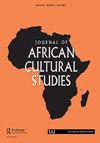Positioning Ourselves on China in Africa: An Interview with Hairong Yan*
IF 0.7
2区 社会学
Q2 CULTURAL STUDIES
引用次数: 0
Abstract
Hairong Yan is an associate professor of the Department of Applied Social Science at the Hong Kong Polytechnic University. She specializes in politics of development, China– Africa links, rural-urban relations, socialism and cooperative economy, and agrarian change in China. Due to the global pandemic, all work has gone digital, including this conversation. In this interview, Dr Yan offered her insights on China’s location in the current world system, China’s involvements inAfrica, and thepossibility of aGlobal South solidarity. What’s more, she also shares her experiences of teaching Global China and China–Africa engagements in Hong Kong – a postcolonial Chinese city whose population is still trying to work out its relationships with its colonial past, the West and the Chinese mainland.中国在非洲的定位——严海荣访谈录*
闫海荣,香港理工大学应用社会科学系副教授。她的研究领域包括发展政治、中非关系、城乡关系、社会主义与合作经济以及中国的土地变迁。由于全球大流行,所有工作都数字化了,包括这次对话。在这次采访中,阎博士就中国在当前世界体系中的位置、中国在非洲的参与以及全球南方团结的可能性发表了她的见解。此外,她还分享了她在香港教授《全球中国》和《中非交往》课程的经验。香港是一个后殖民时代的中国城市,人们仍在努力理清自己与殖民地历史、西方和中国大陆的关系。
本文章由计算机程序翻译,如有差异,请以英文原文为准。
求助全文
约1分钟内获得全文
求助全文
来源期刊

Journal of African Cultural Studies
Multiple-
CiteScore
1.70
自引率
10.00%
发文量
13
期刊介绍:
The Journal of African Cultural Studies publishes leading scholarship on African culture from inside and outside Africa, with a special commitment to Africa-based authors and to African languages. Our editorial policy encourages an interdisciplinary approach, involving humanities, including environmental humanities. The journal focuses on dimensions of African culture, performance arts, visual arts, music, cinema, the role of the media, the relationship between culture and power, as well as issues within such fields as popular culture in Africa, sociolinguistic topics of cultural interest, and culture and gender. We welcome in particular articles that show evidence of understanding life on the ground, and that demonstrate local knowledge and linguistic competence. We do not publish articles that offer mostly textual analyses of cultural products like novels and films, nor articles that are mostly historical or those based primarily on secondary (such as digital and library) sources. The journal has evolved from the journal African Languages and Cultures, founded in 1988 in the Department of the Languages and Cultures of Africa at the School of Oriental and African Studies, London. From 2019, it is published in association with the International African Institute, London. Journal of African Cultural Studies publishes original research articles. The journal also publishes an occasional Contemporary Conversations section, in which authors respond to current issues. The section has included reviews, interviews and invited response or position papers. We welcome proposals for future Contemporary Conversations themes.
 求助内容:
求助内容: 应助结果提醒方式:
应助结果提醒方式:


